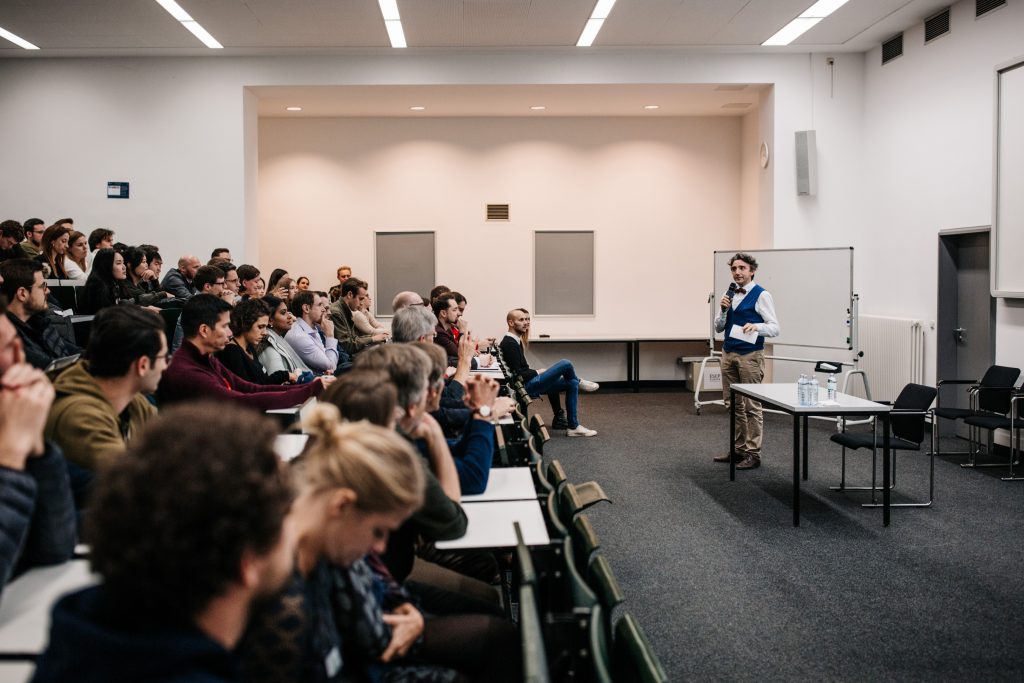What does “entrepreneurial place” even mean?
If you were thinking about buildings, think again. When professor René Mauer talks about “entrepreneurial places”, he talks about jobs. Specifically, jobs that require entrepreneurial skills. He believes that this is the “new way of working in the digital age”, and that there are different contexts and settings where entrepreneurship plays an important role.
In fact, nowadays job descriptions are more and more flexible, they have less structure, and they require an “entrepreneurial mindset”. Then again, entrepreneurship is very subjective. Therefore, there is no official definition for such a mindset and the requested skills are not the same at all times.
Having an “entrepreneurial place” can mean being a startup entrepreneur, a leader, and can be related to your personal work style. But it can also be connected to investors, accelerators, social entrepreneurship, NGOs and so forth. There is no more structure, no more having the same job for 30 years. Students are looking to commercialize their own workforce, their own skills and abilities: much like a startup does. If you do not find a pre-structured job that suits you, you invent one, you make your own workplace.

Including entrepreneurial places in academic paths
At the Jean Baptiste Say Institute for Entrepreneurship at ESCP, we have a broad knowledge of entrepreneurship. Our goal is to provide students with tools to understand what it means. When faced with the new specialization for Human Resources (HR) about entrepreneurship in jobs, professor René Mauer saw an opportunity. In fact, he says, corporate companies are looking more and more into how startups work. Entrepreneurship isn’t only for new companies, but it can also mean implementing entrepreneurial practices into established company structures. Therefore, the link with HR is evident: our students need to know what is currently available on the market, what expectations they will face from employers, and prepare at best.
And just like that, the “entrepreneurial spaces” course was born. In this seminar, students were directly in contact with ESCP alumni, working in different entrepreneurial jobs. They were provided with an analytical framework to prepare for their meetings and conducted interviews to understand the specificity of that individual workplace. This way, each of them was able to dive deep into a particular position and reported on their findings. What we are left with, after this course, is a collection of 35 articles about different entrepreneurial spaces. This analysis of real-life evidence of what different jobs require reveals that there are recurring elements in different entrepreneurial workplaces.
In the next few weeks, we will be publishing the most interesting findings by the students, so that our readers can also benefit from them.